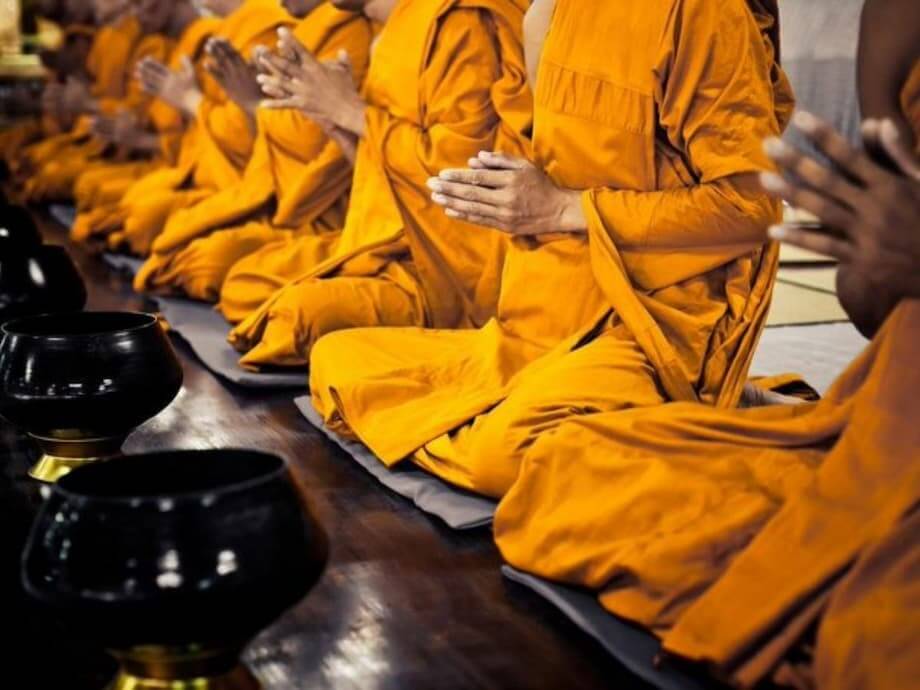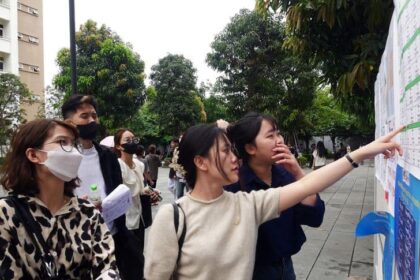The Scandal That Shook Thailand’s Buddhist Establishment
Thailand, a nation where over 90% of the population identifies as Buddhist and monks are revered as moral exemplars, has been rocked by a scandal that has exposed deep fissures in its religious institutions. In July 2025, police arrested Wilawan Emsawat, a 35-year-old woman known as “Ms Golf,” on charges of extortion, money laundering, and receiving stolen goods. The allegations: she seduced at least nine senior Buddhist monks, recorded their sexual encounters, and then blackmailed them for vast sums of money. The case has led to the defrocking of prominent monks, the revocation of royal honors, and a national reckoning over the intersection of money, power, and faith in Thai Buddhism.
How the Scandal Unfolded
The story began to unravel in mid-2024, when the abbot of a famous temple in Bangkok abruptly left the monkhood. Police investigations revealed that he had been blackmailed by Wilawan, who claimed to be pregnant with his child and demanded over seven million baht (about $220,000) in child support. As authorities dug deeper, they discovered that this was not an isolated incident. Wilawan had allegedly targeted other senior monks in a similar fashion, initiating romantic relationships, secretly recording their encounters, and then threatening to expose them unless they paid large sums of money.
When police searched Wilawan’s home in Nonthaburi province, they found more than 80,000 photos and videos on her mobile phones—evidence of her relationships with monks across Thailand. Investigators traced bank transfers totaling around 385 million baht (approximately $11.9 million) over three years, much of which was spent on online gambling. The scale of the operation and the involvement of high-ranking clergy stunned the public and authorities alike.
Why This Scandal Matters
Scandals involving monks are not new in Thailand, but the magnitude and nature of this case have made it exceptional. Monks in Thailand, especially those of the Theravada tradition, are expected to adhere to strict codes of conduct, including celibacy and detachment from worldly desires. The revelation that senior monks were not only breaking these vows but also transferring large sums of temple money to cover up their actions has raised serious questions about the integrity of the Buddhist establishment.
As Jaroonkiat Pankaew, a deputy commissioner of the Central Investigation Bureau, explained at a press conference, “This woman is dangerous and we needed to arrest her as soon as possible.” The police have since set up a hotline and a Facebook page for the public to report misbehaving monks, signaling a broader crackdown on clerical misconduct.
The Role of Money and Power in Thai Buddhism
One of the most troubling aspects of the scandal is the spotlight it has cast on the financial dealings of Thai temples. While monks are supposed to lead lives of simplicity, many temples receive substantial donations, and abbots often control significant wealth. This has created opportunities for corruption and abuse, as seen in this case and others in recent years.
Commentators and scholars have long warned that the hierarchical, authoritarian structure of the Thai Sangha (the monastic community) discourages whistleblowing and accountability. As religious scholar Suraphot Thaweesak told BBC Thai, “It is an authoritarian system similar to the Thai bureaucracy where senior monks are like high-ranking officials and junior monks are their subordinates. When they see something inappropriate, they do not dare to speak up because it is very easy to be kicked out of the temple.”
Who Is Wilawan Emsawat?
Wilawan Emsawat, also known as Ms Golf, is at the center of the scandal. According to police and media reports, she deliberately targeted senior monks for financial gain, initiating relationships and then using evidence of their sexual encounters to extort money. Before her arrest, Wilawan admitted to having relationships with two monks and a religious professor, claiming she had given money to one of them. She has not made any public statements since being taken into custody, and it is unclear if she has legal representation.
Police believe Wilawan’s “modus operandi” involved building trust with monks, recording their intimate moments, and then threatening exposure unless they paid her. The sums involved were staggering, with some monks transferring millions of baht from temple accounts. The financial trail also revealed that much of the money was quickly withdrawn and used for online gambling, raising further questions about oversight and accountability within the temple system.
The Fallout: Defrockings, Royal Revocations, and Calls for Reform
The immediate consequences of the scandal have been severe. At least nine abbots and senior monks have been disrobed and cast out of the monkhood. Some have gone into hiding, with reports of one prominent abbot fleeing to Laos to avoid investigation. Thailand’s King Maha Vajiralongkorn responded by revoking royal commands that had conferred higher ecclesiastical titles on 81 monks, citing the damage caused by recent misconduct.
The Sangha Supreme Council, the governing body for Thai Buddhism, has announced the formation of a special committee to review monastic regulations. The government, led by acting Prime Minister Phumtham Wechayachai, is pushing for stricter laws governing monks and temple finances, including harsher penalties for those who violate the monastic code. The National Office of Buddhism has suggested reviving draft legislation that would introduce criminal penalties for damaging the reputation of Buddhism.
Public Reaction and the Erosion of Trust
The scandal has sparked widespread outrage and soul-searching in Thailand. While faith in Buddhism as a philosophy remains strong, trust in the clergy has been badly shaken. Many Thais see the case as symptomatic of deeper problems within the monastic system, including a lack of transparency, unchecked privilege, and the temptation of wealth.
Some commentators have noted that while Wilawan is being prosecuted, the monks involved are often portrayed as victims, despite their own breaches of religious vows and, in some cases, misuse of temple funds. This has led to calls for greater accountability and a re-examination of the power dynamics within the Sangha.
Scandals Past and Present: A Pattern of Misconduct
This is not the first time Thailand’s Buddhist institution has faced scandal. In 2017, Wirapol Sukphol, a monk known for his jet-setting lifestyle, was charged with sex offences, fraud, and money laundering. In 2022, all four monks at a temple in Phetchabun province were arrested in a drug raid and disrobed, leaving the temple empty. These incidents, along with the current case, have fueled demands for reform and greater oversight.
Experts argue that the root of the problem lies in the combination of hierarchical authority, lack of external scrutiny, and the flow of large sums of money through temples. As Prakirati Satasut, a sociology scholar at Thammasat University, put it, “The important thing is to reveal the truth so that the public can ease their doubts about the innocence of the Sangha. It depends on whether the Supreme Sangha Council will cut off some arms and legs to save the organization.”
What’s Next for Thai Buddhism?
The ongoing investigations and the government’s commitment to reform have been welcomed by many as a necessary step toward restoring public confidence. The Central Investigation Bureau’s hotline and Facebook page for reporting misbehaving monks signal a new era of transparency, at least in intent. However, real change will require not just new laws but a shift in the culture of the Sangha, making it safer for whistleblowers to come forward and for abuses of power to be challenged.
Broader Implications: Faith, Modernity, and the Future
The scandal has also sparked a broader debate about the role of religion in modern Thai society. For many, Buddhism is not just a personal faith but a cornerstone of national identity and social cohesion. The repeated exposure of misconduct among monks threatens to undermine this foundation, especially among younger generations who are already questioning traditional authority structures.
At the same time, the case has highlighted the resilience of Buddhist philosophy itself. While individual monks may fall short, the core teachings of Buddhism—emphasizing compassion, self-discipline, and detachment from material desires—remain a source of guidance and comfort for millions. The challenge now is to ensure that the institutions entrusted with upholding these values are worthy of the public’s trust.
In Summary
- A Thai woman, Wilawan Emsawat (“Ms Golf”), was arrested for seducing and blackmailing at least nine senior Buddhist monks, extorting nearly $12 million over three years.
- The scandal was uncovered after an abbot in Bangkok left the monkhood, revealing a pattern of extortion involving explicit photos and videos.
- Police found over 80,000 images and videos used for blackmail, and traced large sums of money funneled from temple accounts, much of it spent on online gambling.
- At least nine monks have been defrocked, and Thailand’s King revoked royal honors for 81 monks in response to the scandal.
- The case has exposed deep issues of money, power, and lack of accountability within the Thai Buddhist establishment.
- Authorities are now pushing for legal reforms, stricter oversight of temple finances, and greater transparency in the monastic community.
- Public trust in the clergy has been shaken, but many see the ongoing investigations as a step toward much-needed reform and renewal of faith in Buddhist institutions.












